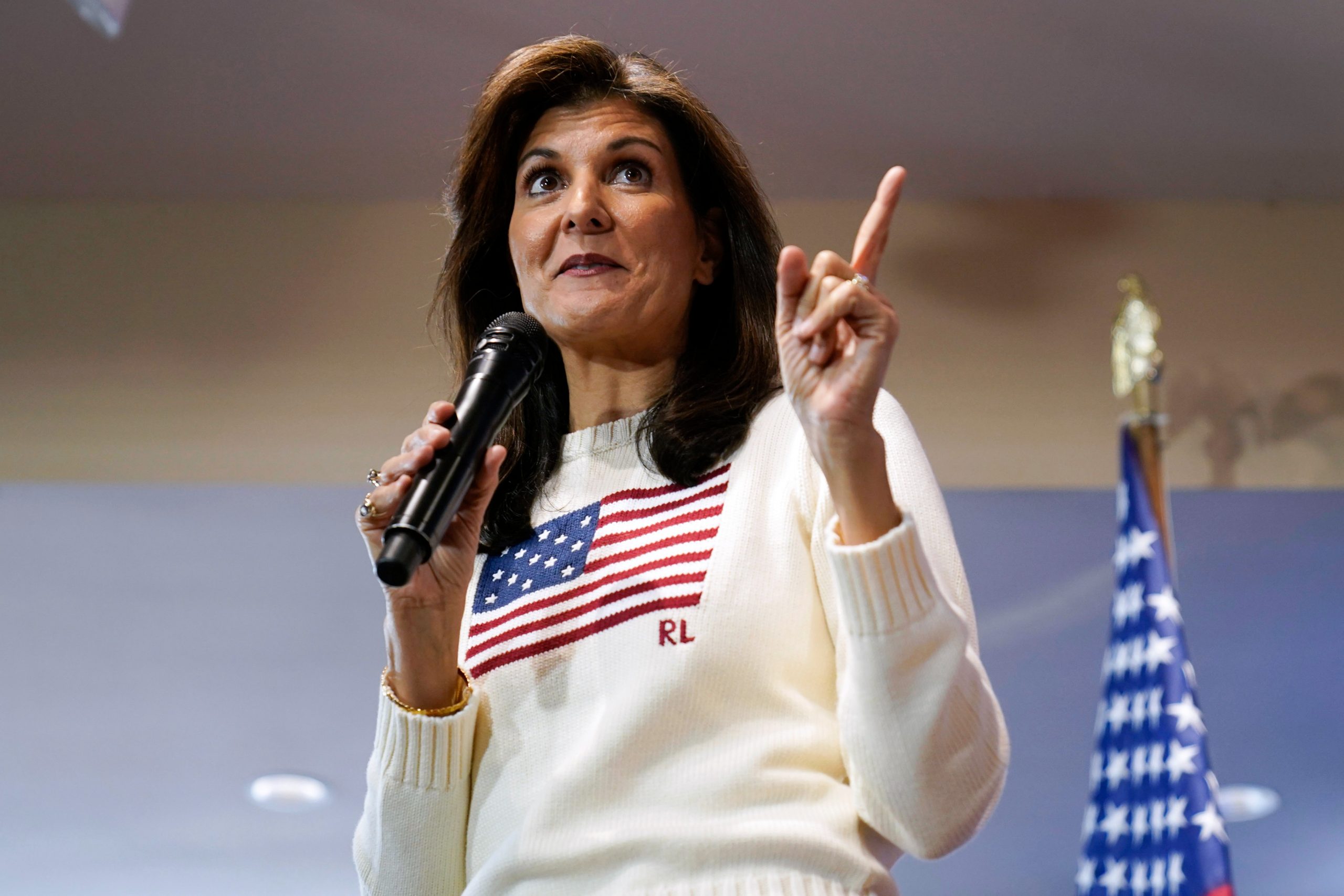She is courageously fighting to maintain hope that Republican voters will recognize Donald Trump’s unsuitability for office and reject him before it’s too late.
Her dedication to allowing GOP primary voters who have not yet cast their ballots to have their say deserves recognition. Her strategy is commendable, rooted in the belief that as Trump’s legal troubles mount, “buyer’s remorse” will set in among Republican voters.
Several polls indicate that Nikki Haley, known for her tenacity and appeal to moderates and independents, would pose a stronger challenge to President Joe Biden in November. The portion of Republicans supporting Haley signals trouble for Trump if they solidify into a faction of Never Trumpers.

Nikki Haley (Credits: AP News)
Although Haley represents the last chance for GOP voters to pivot away from Trump, it appears unlikely they will do so. Even if Trump were to step aside due to legal or health issues, Haley’s bold challenge is unlikely to result in her unseating him.
Trump currently holds a significant lead in Tuesday’s Michigan primary and is expected to perform well in the Super Tuesday states voting on March 5, putting him on a path to accumulate an insurmountable delegate lead.
Experts on primary politics and political conventions suggest that the Trump loyalists who dominate the Republican Party would be more inclined to support Florida Governor Ron DeSantis (seen as a less charismatic version of Trump) than Haley if Trump were to withdraw, viewing Haley as a traitor to the “Make America Great Again” (MAGA) movement.
The delegate count is critical, with 1,215 needed to secure the Republican nomination. Trump’s strong performance in states like South Carolina, where he won 47 delegates compared to Haley’s three, underscores his dominance.
So far, he has amassed 139 delegates compared to Haley’s 20, with many more delegates set to be awarded on Super Tuesday, where Trump is expected to benefit from winner-take-all rules.























